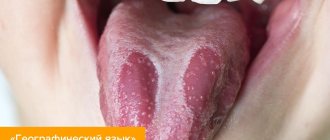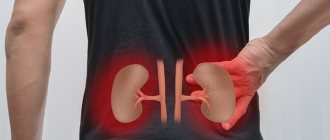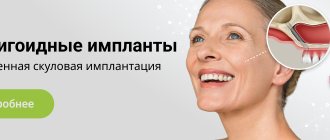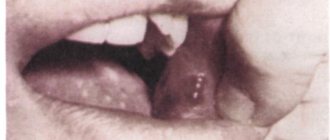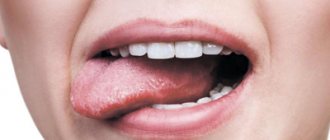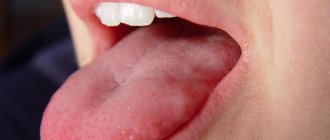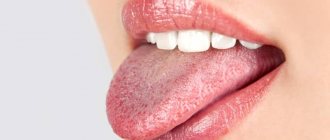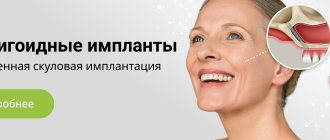Oral injuries
Damage to the mucous membrane of the tongue can occur in the following cases:
- Brushing your teeth with a brush that is too hard.
- Broken tooth or damaged filling.
- Eating foods that can irritate the mucous membrane of the tongue and lead to the appearance of ulcers.
- Installation of low-quality dentures or braces.
- Injury to the tongue while eating with cutlery.
- Biting with teeth.
- Burns to the mucous membrane of the tongue due to a hot drink.
Considering the large presence of capillaries in the mucous membrane of the tongue and the content of the bactericidal substance lysozyme in saliva, wounds on the tongue in an adult or child of mechanical origin heal quite quickly and do not require the use of special medications.
Oral disease:
Aphthous stomatitis
- characterized by the appearance of point inflammations in the oral cavity, which are called aphthae.
These manifestations are quite painful and interfere with comfortable eating. Treatment of tongue ulcers lasts from one week to a month. As a rule, aphthous stomatitis leaves raised scars. Stomatitis
- inflammatory manifestations are covered with a gray-white film.
With daily rinsing it goes away within a week. Herpetic stomatitis
is expressed by the formation of small ulcers that are similar to herpetic manifestations on the lips.
The boundaries of inflammation are blurred and mainly affect the lower part of the tongue. They heal within 8-14 days, scars are not visible. Fungal stomatitis
(popularly called thrush) is most common in young children.
Easily treatable at home. Recurrent periadinitis
- first, compactions form on the submucosa, and then ulcers with raised edges appear.
Such manifestations are quite painful, form on the edges of the tongue, gums and lips, and take several months to heal. This type of ulcer on the tongue in adults and children can only be treated with the strict supervision of specialized specialists. Bernard's canker sores
- the most common ulcers on a child's tongue, manifests itself in the form of a plaque with a yellow tint. The reason is failure to maintain good oral hygiene. Treatment of ulcers is carried out within a week.
Other provoking factors
There are several other reasons that can lead to the appearance of wounds on the tongue:
- Hormonal imbalance, which is often observed during pregnancy or during menstruation in women.
- Diabetes.
- Hereditary predisposition.
- The presence of viral infections in the body.
- Deficiency of certain vitamins and minerals, for example, B12, iron.
- Drinking coffee in large quantities.
- Brushing your teeth with a paste that contains sodium lauryl sulfate.
- Alcohol abuse.
- Frequent smoking.
- Poor oral hygiene.
- Heatstroke.
- Avoiding morning meals.
If wounds appear on the tip of the tongue, your doctor will tell you how to treat it, but first you need to find out the cause in order to choose effective therapy.
Let's consider some common pathologies of the body that can provoke such lesions.
Tongue traumatism: theory
Before you begin treatment of the tongue, you should carefully study the nature of the injury and its causes.
Mechanical impact
The first type of damage - mechanical - is the most common cause of tongue injuries. Due to mechanical damage, ulcers and superficial erosions form on the tongue.
Conditions under which mechanical injuries occur are of a domestic nature:
- damage to the integument by dental instruments - probe, bur, disc;
- the occurrence of a wound under the influence of a sharp object - a bone, a knife, a fork;
- biting the tongue while eating, epileptic seizure;
- the appearance of tongue injuries from blows to the face.
Healing of a wound caused by mechanical impact occurs depending on the depth and area of damage to the mucous membrane.
Chemical burn
Chemical injury to the tongue, as the second type of injury, occurs due to contact with the mucous membrane of a chemical substance of an acidic or alkaline nature.
Under the influence of an irritant, chemical burns occur on the tongue. The latter are characterized by the appearance of dark-colored areas, scars, blisters and blisters on the tongue (in severe cases).
Instant rinsing of the mouth with solutions with neutralizing properties is the key to rapid restoration of the integument.
For chemical burns, it is preferable to seek help from medical institutions.
Painful influence from the outside
Damage to the mucous membrane by steam, hot water, fire, electric current or ionizing radiation is called physical trauma to the tongue.
Characteristic of this type of injury is pain that gradually subsides from the moment of injury.
The main danger of physical injury is the development of acute catarrhal glossitis (inflammation). Consultation with a doctor in complex stages of injury is mandatory.
Deep damage to the tongue caused by various kinds of external irritants can be accompanied by complications: abscess or phlegmon of the tongue.
Painful swelling and accompanying difficulties with swallowing and speaking are symptoms of an abscess. In later stages, with increasing inflammation of the tongue, the abscess turns into phlegmon. The victim requires emergency hospitalization and surgical intervention.
Glossitis
This pathology is a type of stomatitis. Manifests itself as an infectious inflammation of the mucous membrane of the oral cavity and tongue. The disease most often develops against the background of a variety of reasons that were listed earlier, and is manifested by a variety of symptoms.
Without therapy, the situation will only get worse, so it is better to visit a doctor for advice.
Sores on the tongue due to syphilis
Among the serious pathologies that cause sores on the tongue is syphilis. With the development of such a pathology, not only internal organs, bones, and the nervous system are affected, but also the mucous membranes are revealed.
As syphilis develops, white sores appear on the tongue. In the first stages of the disease, they do not cause discomfort and are almost invisible. With the development of the inflammatory process in the body, wounds on the tongue of an adult become larger and more painful.
Such sores take a long time to heal; without effective therapy for syphilis itself, it is difficult to achieve a complete cure.
Types of abrasions and wounds
We encounter cuts and all kinds of abrasions in everyday life. An abrasion is damage caused by mechanical friction against a rough and rough surface, often hard. This may be the result of a fall on asphalt or gravel.
The abrasion may be superficial, in which case only the epidermis is affected. The area turns red and swells a little. If the injury is deeper, then not only the epidermis is damaged, but also the capillaries, which leads to pinpoint bleeding, droplets of blood are released, but most importantly, the person experiences severe pain.
A cut is a shallow cut wound. With such an injury, either only the skin is damaged, or the layer of fatty tissue is affected. In such cases, bleeding occurs, the intensity of which will be determined by the depth of the cut and the number of damaged vessels.
Wounds can be superficial or deep, and large vessels can even be damaged. In this case, severe bleeding occurs. Wounds may be accompanied by bruises and bruises. In addition, dirt, various objects, earth, etc. often get into the wound.
Afty Bednar
In infancy, sores may also appear on the child's tongue. Your pediatrician will tell you how to treat them. This happens in some cases due to frequent sucking on a bottle or pacifier.
The ulcers on the baby's tongue become covered with plaque, which is difficult to remove. The mucous membrane becomes red and swollen, becomes painful, and the baby refuses the breast or bottle.
This pathology can also develop in older children if they have a bad habit of sucking fingers or putting toys in their mouth.
How to treat wounds on the tongue if they are caused by thrush? This pathology often develops in children, so visiting a pediatrician will help quickly help your child get rid of the discomfort and pain that accompany the pathology.
How to help a child with a stuck tongue?
- The first and most important thing is to calm the baby so that he does not twitch or try to tear off his tongue or lip on his own to avoid injury. Hug, reassure, tell that nothing bad is happening and you will help.
- The metal needs to be heated. The ideal way is with a warm drink from a thermos (this is not uncommon - mothers often take a thermos with them on walks). Pour a thin stream onto the metal surface in the area in contact with the baby's skin. The metal will heat up quickly, and the tongue will come off without injury.
- If there is no hot liquid nearby, warm the metal surface by breathing. Explain to your child how to breathe correctly: close your nose and exhale through your mouth. By warming the surface, you can slowly release the child's tongue, avoiding significant injury. It will take more time, but it will help.
Allergies are the cause of pain
If the wounds on the tongue, photos of which can be seen on stands in many clinics, do not have purulent contents, then the reason may be hidden in a common allergic reaction. It may appear in response to eating certain foods or using hygiene products.
Numerous studies have confirmed that there is a connection between oral wounds and one of the components of toothpaste - sodium lauryl sulfate.
Some medications cause sores on the tongue
Drug therapy in some cases can provoke side effects, which may include sores on the tongue. Most often, such conditions are caused by treatment with the following medications:
- Heart drug "Nicorandil".
- Non-steroidal anti-inflammatory drug "Indomethacin".
- Phenytoin, which is used to treat epilepsy.
- Cytotoxic drugs, which are often part of chemotherapy treatment.
Treatment of wounds on the tongue that have arisen due to medications requires an integrated approach. If the cause is clearly established, then you will have to stop taking the drugs for a while, unless the severity of the consequences exceeds the benefits of treatment, for example, for cancer. It is not recommended to make a decision on your own in such cases; it is better to discuss this issue with your doctor.
Treatment Basics
As mentioned earlier, treatment for tongue injuries depends on the nature of the injury. While a home first aid kit is sufficient to heal superficial injuries, eliminating the consequences of traumatic factors in case of serious injuries requires, first of all, consultation with a doctor who will select the necessary medications and prescribe recommended procedures.
What to do depending on the type of injury:
- The standard method of treatment or initial treatment of mechanical injuries is the use of antiseptics (alcohol, iodine, brilliant green). Rinsing with disinfectants helps in restoring the mucous membrane: furatsilin, hydrogen peroxide, potassium permanganate dissolved in water in a ratio of 1 to 3000 or baking soda at the rate of 1 teaspoon per 250 ml. Do not neglect plant decoctions with calming properties.
- Knowledge of chemical neutralizing reactions will be useful in case of chemical burns , because the “golden rule” of first aid for this is as follows: rinse with a neutralizing solution. Timely implementation of the necessary procedures will avoid further treatment. Blisters appearing on the tongue indicate severe damage. Opening of formations with subsequent processing should only be carried out by specialists. After neutralizing the blisters, doctors most often prescribe rinsing the mouth with disinfectants.
- Profusely bleeding wounds require immediate tamponade. It is unacceptable to independently remove foreign bodies from ulcers.
Signs of pathology
Sores on the tongue can appear in different places, and the process of their formation goes through several stages:
- In the first stage, swelling and small blisters appear on the tongue.
- Next, bubbles appear.
- The wounds are covered with a layer of white or yellow plaque, and a red border appears.
There are no age preferences for sores on the tongue; they can appear in children and adults. The frequency of their formation varies from several times throughout life, while in others they may appear with enviable regularity.
Usually the sores go away quickly, but if the wound on the tongue does not heal, then you should visit a doctor and find out the cause.
See a doctor urgently
It is necessary to urgently contact a specialist if:
- A large number of ulcers, wounds and neoplasms appear in the oral cavity.
- Open wounds appear, accompanied by severe pain.
- The sores appeared due to wearing dentures or artificial structures in the oral cavity.
- Sores have appeared on the tongue and are bleeding.
- The general condition worsens, the temperature rises, weakness.
- Sores and sores quickly increase in size.
- I have a headache and a feeling of fullness in the mouth.
If the listed symptoms are present, only a doctor can tell you how to treat wounds on the tongue.
Wound therapy
If sores appear on the tongue that do not cause discomfort, but do not go away for a long time, then you need to consult a doctor to rule out a serious pathology developing in the body.
Comprehensive therapy is required, which will be aimed at:
- Elimination of the provoking factor.
- Fighting symptoms.
- Boosting immunity.
How to treat wounds on the tongue of a child or an adult depends on the cause of their appearance. Therapy may include conservative methods and traditional recipes.
What to do if you cut or bite your tongue?
If a person experiences such a nuisance as a cut or tongue biting, the first thing to do is to assess the extent of the damage. It is necessary to go to the mirror and examine the oral cavity.
Important
If the area of damage to the tongue is very large, the tongue is bleeding heavily, and there is additional damage to the teeth, you should immediately consult a doctor; you may need stitches.
In other cases, when it is a banal cut from a food bone or a slight biting of the tongue, you can deal with such a nuisance on your own.
First aid for tongue injury:
- If your tongue is bleeding, the first thing you need to do is stop the bleeding. If you can get to the damaged tongue area with your hands, then place a folded bandage or towel above the damaged area and press the tongue. Hold the towel for 10-15 minutes.
- Cold will also help stop bleeding. You can take an ice cube, wrap it in a bandage and apply it to the damaged area of the tongue. And if there is no ice, you can rinse your mouth with cold water several times.
- After the bleeding stops, treat the wound with an antiseptic, for example, an aqueous solution of Chlorhexidine.
Treatment of wounds on the tongue
If a wound on the tongue occurs after biting your teeth, you can rinse with a solution of soda or hydrogen peroxide. To eliminate pain, you can dissolve tablets with Lidocaine.
In the case where the provocateur of ulcers and wounds on the tongue is an infection, the therapy may be as follows:
- For stomatitis of a fungal nature, the wounds can be treated with ointments with an antifungal effect. For adults, Nystatin is suitable.
- You cannot do without antiviral ointments if you have wounds due to a viral disease.
- The resulting sores with purulent contents must be treated with antibacterial agents, for example, Tetracycline or Achromycin.
- The fight against the inflammatory process in the oral cavity is carried out using Fluocinonide or Triamcinolone.
- In case of severe pain, wounds can be treated with a gel with analgesic properties “Oragel”. You need to apply the product to the sores several times a day.
- To prevent the formation of scars at the site of wounds after healing, it is recommended to use gels or ointments with regenerating properties.
- It is recommended to rinse your mouth daily with pharmaceutical rinses; you can prepare such products yourself using sage or chamomile.
Considering that white formations on the tongue often occur due to disturbances in the gastrointestinal tract, the fight against them should also combine the use of probiotics to normalize the intestinal microflora.
Biting your tongue - everyone knows this
Biting the tongue, cheek or lip is accompanied by painful sensations, as damage to the mucous membrane occurs.
Obviously, the initial goal after a bite is to reduce pain. So, what should you do if you bite your tongue, what and how to relieve pain and inflammation?
The main rule is to remain calm. Calm down and try to come to terms with the pain, because tantrums and tears will not help heal the damage.
And then you should do the following:
- Be sure to stop bleeding , if any. An elementary solution would be to repeatedly rinse with cold water: it will help narrow the blood vessels and reduce bleeding activity. A worthy alternative would be a piece of ice.
- Cotton swabs soaked in 2% Lidocaine help in the fight against painful sensations . Another variation to reduce pain is eye drops with an anesthetic - Tetracaine, Alcaine.
- It is important to disinfect the entire oral cavity : brush your teeth thoroughly and rinse your mouth.
- Maintain regular rinsing : it is advisable to wash away the remains of eaten food after each meal.
- Use antiseptics such as Antiangin, Trachisan, Furacilin in the form that is optimal for you: spray, lozenge or solution.
- Avoid eating rough, cold or hot foods . During the restoration of the oral mucosa, it is advisable to create a daily menu of liquid soft foods at medium temperature: purees, soups.
- Avoid cold foods - ice cream, frozen juice and other foods with temperatures below zero - they slow down the healing process.
- Take a course of vitamins to help restore damaged areas. The optimal solution would be to include vitamin C and group B in the diet.
Do not forget to adhere to sanitary and hygienic measures: do not reach into the oral cavity with dirty hands, do not put pressure on the resulting injury.
Never pour iodine or brilliant green or peroxide into a wound: give preference to treating the environment around the injury. Antibiotics can only be used as prescribed by a doctor.
In practice, there are cases of tongue biting. In such a situation, it is important to remain cool, act quickly and in an organized manner: place the “particle” in a bag filled with ice and go to the hospital. To relieve painful sensations, it is permissible to ingest cold food: suck ice cream, frozen juice, ice, drink water.
Use of Medicines
If home remedies do not help get rid of sores on the tongue, then you cannot do without medications. Most often, doctors prescribe:
- Antiseptic drugs that destroy bacteria, reduce the sensitivity of the mucous membranes of the tongue and oral cavity, thanks to analgesic components. This category includes: “Inhalipt”, “Gexoral”, “Strepsils”.
- Products with disinfecting properties can be used: ethyl alcohol, alcohol solution of iodine, hydrogen peroxide.
- Dental gels and ointments that not only disinfect, but also relieve pain. These include: “Kamistad”, “Cholisal”, “Solcoseryl”.
- Rinsing the mouth with a solution of “Furacilin”, “Chlorhexidine”, “Chlorophyllipt”. If you don’t have these drugs on hand, you can prepare a rinse solution from iodine, salt and soda.
All of the listed remedies must be used only with the permission of a doctor and with extreme caution so as not to cause even greater harm to the mucous membrane of the tongue. Medicines should be applied to wounds purposefully, trying not to affect adjacent healthy areas.
Treatment
Lesions of the lining of the oral cavity cannot be ignored. Treatment primarily involves eliminating provoking factors and bad habits. Injury to the cheek by teeth requires disinfectants, anti-inflammatory drugs, and bactericidal therapy. It is important to relieve irritation, reduce pain, burning, and remove swelling. Traumatic lesions are treated according to the following scheme:
- First, all habits and factors that cause harm to the mucous membrane are eliminated.
- Then applications with painkillers (anesthetics) are applied to the defective areas. These can be suspensions, Kalgel, Pansoral.
- Applications may contain proteolytic enzymes such as trypsin, lysozyme, chymotrypsin.
- The affected areas are treated with weak solutions of antiseptic drugs such as Corsodil, Stomatofit. The latter remedy is multicomponent. It relieves inflammation, has an antiseptic effect, and heals wounds.
- According to indications, a prosthesis is placed on the destroyed organ. Veneers are often used for one tooth.
- Prescribed preparations for rinsing the mouth.
- Products that stimulate regeneration are recommended. These include Kamistad, Solcoseryl, Vitaon.
Gels for external use may contain tincture of medicinal herbs, lidocaine hydrochloride, and other medical substances. Lidocaine and its analogues help to quickly eliminate pain. The gel base allows you to distribute the product throughout the affected membrane, rubbing it in with massaging movements. Therapy of the affected areas is carried out with adhesive preparations that remain on the mucous membrane for a long time. Long-term adhesion is ensured by components such as pectin, gelatin and pectin.
Dentists prescribe drugs that improve the oxygen supply to affected tissues, restore defective areas, accelerate the healing period, and have excellent binding ability. After applying modern ointments, not only does the pain disappear, the product adheres well to defective tissues, forming a protective layer on them that protects them from chemical and mechanical damage. This is a protective layer from the effects of aggressive saliva, as well as food. The anhydrous base of medicinal pastes absorbs wound discharge. In the treatment of pathologies, it is important to use drugs from several pharmacotherapeutic groups that quickly relieve clinical symptoms and ensure epithelization of the lesion.
Traditional recipes for getting rid of ulcers
How to treat wounds on the tongue if there are no necessary medications in your home medicine cabinet? Then you can use folk recipes that will help alleviate the condition at least a little. Among these are the following:
- Use of infusions of medicinal herbs. Among the gifts of nature, the following have powerful antiseptic properties: St. John's wort, sage, viburnum berries, and yarrow.
- Aloe and sea buckthorn oil have healing properties. They can be applied several times a day to wounds.
- The healing properties of oak bark, propolis, honey and onions have been proven.
- A decoction of coriander will help cope with sores on the tongue. To prepare it, you need to take a tablespoon of seeds, pour 200 ml of boiling water, and simmer over low heat for half an hour. After cooling, strain and can be used to rinse the mouth. Before the procedure, the broth must be diluted slightly with water.
- Juice from fresh cabbage will help eliminate the inflammatory process and reduce formations. Soak a cotton swab in the juice of the plant and treat the wounds.
- Propolis. For treatment you need to prepare a decoction. Pour boiling water over several pieces of propolis and keep in a water bath for 30-40 minutes. Cool to room temperature and use to rinse your mouth every hour.
- Potato. Peel raw potatoes. Cut into pieces to be applied to the wounds on the tongue. The starch in tubers relieves inflammation and reduces pain.
- Onion and garlic. Grind one of the vegetables into a paste and apply to damaged areas on the tongue. Phytoncides promote rapid relief of the inflammatory process and suppress the development of pathogenic microorganisms.
- You can also apply lemon juice directly to the wounds on your tongue.
Greater effectiveness can be achieved if you combine drug treatment with the use of traditional recipes. When using folk remedies, it is necessary to exclude the presence of allergies to some natural gifts.
Danger of wounds on the tongue
If you do nothing and do not find out the cause of the appearance of ulcers and wounds on the tongue, then there is a high probability of developing various complications. These may include the following:
- Abscess formation.
- Formation of an abscess with purulent contents inside.
- When an abscess ruptures, pathogenic microorganisms can enter the bloodstream, causing the infection to spread throughout the body.
If wounds and ulcers appear on the tongue, which do not go away for a long time, and the situation only gets worse over time, you should not put off visiting a doctor. Timely therapy will avoid serious consequences.
Ulcers on the tongue are caused by common diseases.
Ulcers are caused by viral diseases, stomatitis, deterioration of the immune system, and exhaustion of the body. In this case, ulcers under the tongue, active salivation, unstable temperature, sweating, and bad breath are characteristic. The inflammations are covered with a greenish coating with jagged edges. Ulcers caused by pulmonary tuberculosis. As a rule, it provokes oral tuberculosis. This disease is characterized by loose ulcers with raised edges. Vivid symptoms of oral tuberculosis will be fever, lethargy, and mild nausea. Mouth ulcers are caused by an infectious disease such as syphilis. Inflammation accompanies the entire cavity - tongue, lips, palate, throughout the entire period of the disease, except for the incubation period. Ulcers on the tongue are not accompanied by severe pain, but heal in 2 to 4 months and leave pronounced scars.
Ulcers on the tongue, lips, cheeks, gums, palate due to HIV disease.
These manifestations are inevitable with such a diagnosis, although with careful monitoring and drug support they are treatable. Oral ulcers of the last group are the most risky category of diseases that are provoked by serious illnesses. Recovery is possible through systemic treatment and constant monitoring of both medical workers and the patient himself. This article is for informational purposes only, please consult your doctor for details!
How to prevent pathology
It is easier to prevent the disease than to deal with long-term treatment later. Preventive measures include the following tips:
- Brush your teeth carefully so as not to injure the oral mucosa.
- Choose a brush of medium hardness.
- Visit the dentist regularly to treat caries and remove damaged teeth.
- To clean your teeth, purchase toothpastes that do not contain sodium lauryl sulfate.
- In the diet, reduce the amount of spicy, sour foods that can irritate the mucous membranes.
- Use cutlery carefully.
- Treat infectious and bacterial diseases in a timely manner.
Any wounds and ulcers in the mouth are not only painful and unpleasant, but can also be a symptom of a serious pathology, so you should not rely on self-medication, but rather visit a specialist. Only after finding out the exact cause can effective therapy be selected.
